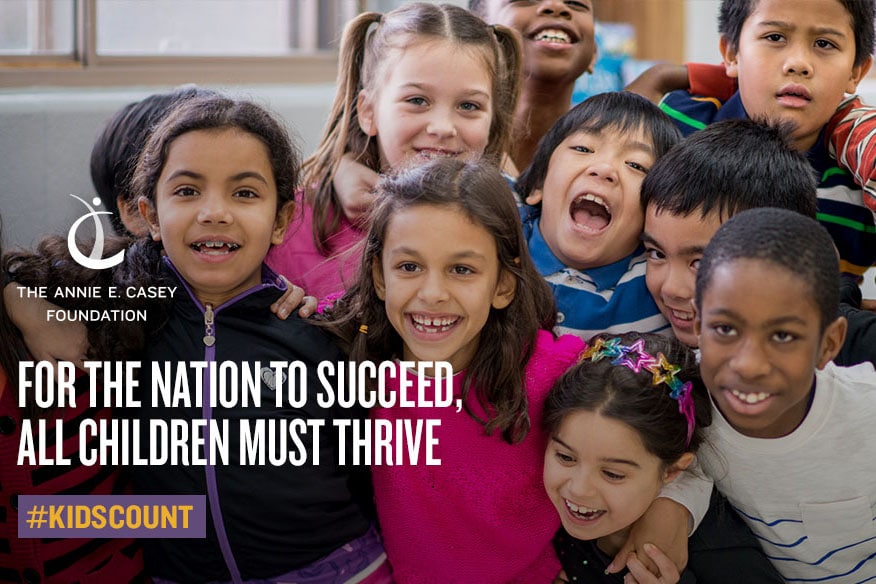Funding for essential health care, early education and K-12 learning, and other basic services depend on an accurate count of our communities. In Washington state, more than $3 billion in federal dollars are allocated yearly to Medicaid, food assistance, Head Start and other programs that help families meet basic needs.

Low-income children, children of color and children living in immigrant households are at greatest risk of being undercounted. The census may also miss children growing up in rural areas, tribal lands or in urban neighborhoods where census workers may have a hard time reaching households.
Further, the Trump administration’s proposed addition of an unnecessary question about citizenship will discourage countless others from filling out the 2020 census form. People without documentation and their families will be afraid that participation will result in having their lives, their families or their communities torn apart by Immigration and Customs Enforcement.
“To give kids the full and equal opportunities to grow and thrive so they can be counted on in the future, we need to count them now,” said Paola Maranan, executive director of the Children’s Alliance. “Without robust efforts to get an accurate 2020 census, we place our shared future in jeopardy.”
In Washington state, an estimated 67,000 of the state’s 447,000 children under age 5 live in census tracts where households responded poorly by mail to the 2010 census—and may do so again in 2020.
The Data Book notes that the threat of greater inaccuracies in the census coincides with the child population passing a landmark: in 2020, most of the U.S. population aged 18 and under will be of color.
“Low-income children, children of color and kids living in immigrant families stand to be disproportionately undercounted, while also having the most to lose as vital programs are sapped of public investment,” said Misha Werschkul, executive director of the Washington State Budget & Policy Center.
The annual KIDS COUNT Data Book ranks each state across four domains of child well-being: health; education; economic well-being; and family and community.
Washington state, which ranked 15th among the 50 states overall, ranked in the top 5 for child health. The percentage of uninsured Washington children fell by half from 2010 to 2016, from 6 to 3 percent. This progress is partially due to state-level efforts to connect more children with affordable, preventive health care through Apple Health for Kids. Apple Health for Kids is supported by federal investments in Medicaid and the Children’s Health Insurance Program, with funding allocations that depend on population estimates derived from the census.
Our state has the greatest room for improvement in the education domain, where it ranks 26th. One in 5 students don’t graduate on time, and almost 60 percent of three- and four-year-olds are not enrolled in preschool.
KIDS COUNT in Washington recommends that two things about the flawed census be changed. First, federal officials need to allocate sufficient funds to support a more accurate census in which as many people as possible can be counted. Second, the census form should be true to the purpose of the count that was originally stipulated in the U.S. Constitution: to count all people who live within U.S. borders. Questions that ask about citizenship will undermine participation—and they are simply not required.
Read the full 2018 KIDS COUNT Data Book. And read the KIDS COUNT Washington state 2018 profile.
***
Media Contacts:
Melinda Young-Flynn, melinday(at)budgetandpolicy(dot)org, (206) 262-0973, x223
Adam Hyla E. Holdorf, adam(at)childrensalliance(dot)org, (206) 324-0340 ext. 18
About KIDS COUNT in Washington
KIDS COUNT in Washington is a partnership of the Children’s Alliance and the Washington State Budget & Policy Center, made possible by support from the Annie E. Casey Foundation. It pursues measurable improvements in child outcomes through equitable public policy measures. For more information, visit www.kidscountwa.org.
About the Annie E. Casey Foundation
The Casey Foundation creates a brighter future for the nation’s children by developing solutions to strengthen families, build paths to economic opportunity and transform struggling communities into healthier places to live, work and grow. Visit datacenter.kidscount.org for the most recent national, state, and local data on child well-being from the Casey Foundation’s KIDS COUNT Data Center.